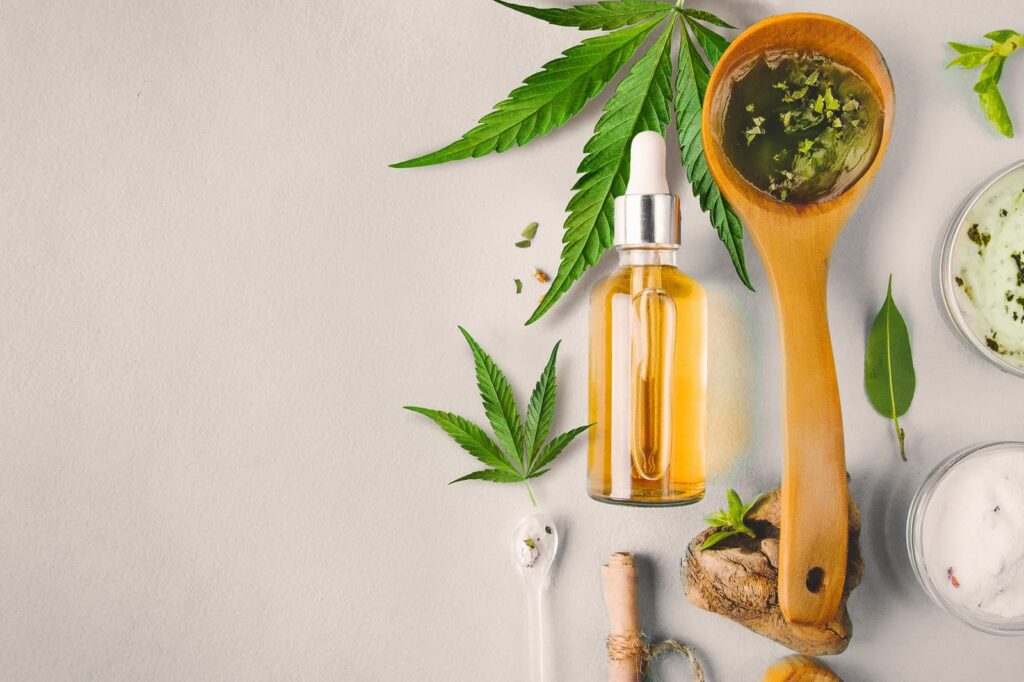Navigating the world of cannabis can feel overwhelming. Two terms you often encounter are THC and CBD. These compounds are key players in the cannabis plant, but they have different effects on the body. Understanding these differences can help you make informed choices. THC is known for creating a ‘high.’ It affects the brain and can alter mood and perception. CBD, on the other hand, does not cause a high. It is more often associated with relaxation and potential therapeutic benefits. Many people visit a Pleasantville cannabis dispensary to explore products containing these compounds. Knowing the basics of THC and CBD can help you decide which might suit your needs. It’s important to understand how each works, their benefits, and any potential side effects. This knowledge allows for better decisions about cannabis use. Let’s dive into what makes THC and CBD distinct and valuable in their own ways.
What is THC?
THC stands for tetrahydrocannabinol. It is the compound in cannabis that causes a high. When consumed, THC interacts with the brain’s receptors. This interaction can lead to changes in mood, perception, and even behavior. THC often provides a sense of euphoria. However, it can also lead to anxiety or paranoia in some individuals.
THC is more prevalent in marijuana plants. It is often used recreationally but also has potential medicinal uses. For example, it can help with pain relief, appetite stimulation, and alleviating nausea. Still, it’s important to note that THC’s psychoactive effects can impair judgment and coordination. Some people may experience side effects like dry mouth, red eyes, or increased heart rate.
What is CBD?
CBD, or cannabidiol, is another major compound found in cannabis. Unlike THC, it doesn’t produce a high. This makes CBD appealing for those seeking relief without altering their mental state. CBD is commonly extracted from hemp, a type of cannabis plant with low THC levels.
CBD is often praised for its potential health benefits. It may help with anxiety, insomnia, and chronic pain. The National Institutes of Health notes its possible anti-inflammatory properties. It’s important to emphasize that CBD products are not a cure-all. They should be used as part of a comprehensive approach to health.
Comparing THC and CBD
When considering cannabis products, it’s helpful to compare the effects, benefits, and legality of THC and CBD. Here’s a simple comparison:
| Aspect | THC | CBD |
|---|---|---|
| Psychoactive Effects | Yes | No |
| Common Uses | Pain relief, appetite stimulation | Anxiety, inflammation, pain relief |
| Legality (U.S.) | Varies by state | Legal if derived from hemp |
| Side Effects | Anxiety, dry mouth, paranoia | Dry mouth, fatigue |
The Legal Landscape
In the United States, the legality of THC and CBD varies. THC is federally illegal but allowed in some states for medical or recreational use. The FDA provides guidelines on cannabis-derived products. CBD is legal federally if derived from hemp. However, state laws can differ, so it’s crucial to check local regulations. Understanding these laws helps ensure compliance and safety.
Choosing the Right Product
When selecting between THC and CBD products, consider your goals. If you seek relaxation or relief without a high, CBD might be suitable. If you’re interested in the effects of THC, ensure you are aware of the potential psychoactive effects. It’s always wise to start with low doses and observe how your body responds. Consulting healthcare professionals can also provide guidance tailored to individual health needs.
Conclusion
THC and CBD offer unique benefits and experiences. Understanding their differences helps you make informed choices. Whether for therapeutic use or recreational exploration, both compounds have roles to play. By knowing how each works and considering legal aspects, you can navigate the cannabis landscape more confidently. Remember, health decisions should always consider personal needs and professional advice.
Lisa Eclesworth is a notable and influential lifestyle writer. She is a mom of two and a successful homemaker. She loves to cook and create beautiful projects with her family. She writes informative and fun articles that her readers love and enjoy.

